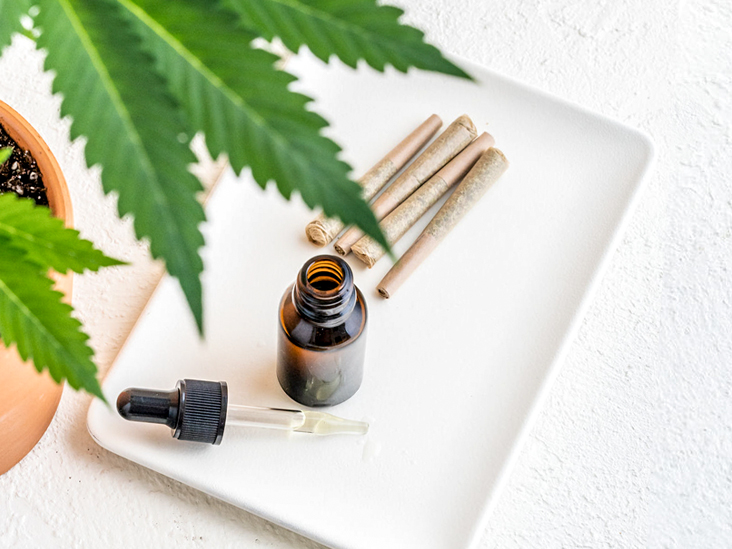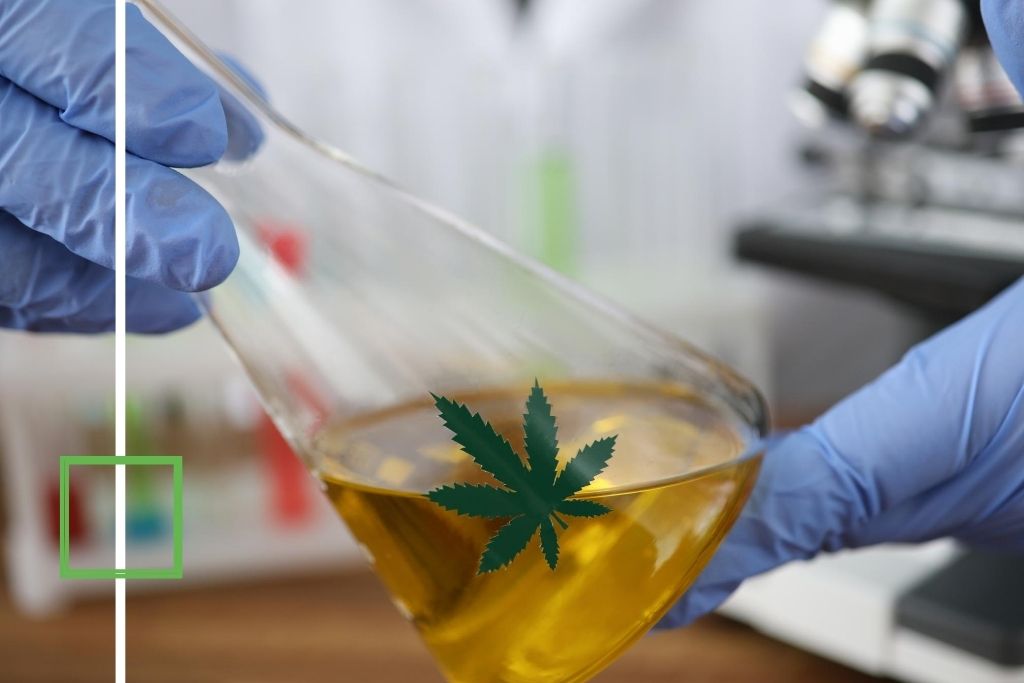Marijuana Withdrawal Symptoms
Marijuana is a well-liked drug frequently used for recreational purposes due to its psychoactive effects. Even though many people believe that marijuana does not have an addictive quality, research has shown that long-term use can lead to physical dependence and symptoms of marijuana withdrawal. After heavy or prolonged use of marijuana, an individual may experience marijuana withdrawal symptoms if they suddenly cut back or stop using the drug altogether. These symptoms can range from mild to severe and last for varying amounts of time, depending on the individual’s level of dependence on the substance and other factors. The following is a list of some of the most common withdrawal symptoms of marijuana:
- Irritability and mood swings.
- Anxiety and depression.
- Insomnia and other sleep disturbances.
- Loss of appetite and weight loss.
- Headaches and body aches.
- Nausea and vomiting.
- Sweating and chills.
- Cravings for marijuana.
- Difficulty concentrating and cognitive impairment.
What is Marijuana?
Marijuana, also known as cannabis or weed, is a psychoactive drug from the Cannabis plant. It contains over 100 chemical compounds known as cannabinoids, the most notable being THC (tetrahydrocannabinol) and CBD (cannabidiol). THC is the primary psychoactive compound in marijuana that produces the “high” sensation, while CBD does not produce a high but has potential medical benefits.
Marijuana has been used for recreational and medicinal purposes for thousands of years. In recent years, there has been growing support for legalizing marijuana for medical and recreational use. According to a survey conducted by the Pew Research Center, 91% of Americans support legalizing medical marijuana, while 60% support legalizing recreational marijuana.
Marijuana is commonly consumed by smoking dried flowers or leaves but can also be consumed in other forms, such as edibles, tinctures, and oils. The potency of marijuana can vary widely depending on the strain, method of consumption, and cultivation conditions.
Marijuana use has both short-term and long-term effects on the body. Short-term effects include altered senses, impaired coordination, and difficulty thinking and problem-solving. Long-term use has been linked to respiratory problems, cognitive impairment, and mental health issues such as anxiety, depression, and psychosis.

Skip To:
Learn More:
Get Help. Get Better. Get Your Life Back.
Searching for Accredited Drug & Alcohol Rehab Centers Near You? Or Mental Health Support?
Even if you have failed previously, relapsed, or are in a difficult crisis, we stand ready to support you. Our trusted behavioral health specialists will not give up on you. Call us when you feel ready or want someone to speak to about therapy alternatives to change your life. Even if we cannot assist you, we will lead you wherever you can get support. There is no obligation. Call our hotline today.
FREE Addiction Hotline – Call 24/7Marijuana Withdrawal Statistics
Globally, marijuana, also known as weed or cannabis, is the most frequently used illicit drug. The United Nations estimates that 158.8 million individuals used marijuana in 2015. Marijuana is the most commonly used illicit drug in the United States in 2019, with over 43 million people reporting past-year use.
In recent years, the legalization of marijuana for both medicinal and recreational purposes has gained popularity. 36 states have legalized medical marijuana, and 15 have legalized recreational marijuana as of 2021. In addition, several nations, including Canada, Uruguay, and portions of Europe, have legalized marijuana.
36.6%
Marijuana edible use grew by 36.6% among occasional users.
Source: NIH
47%
According to national statistics, 47% of marijuana users between 18 and 34 and 30% of adults have eaten edible marijuana.
Source: NIH
26%
In the previous month, 26% of marijuana users consumed edibles, and 44% vaped.
Source: NIH
Cannabis/Marijuana Drug Facts
Marijuana
Cannabis sativa or Cannabis indica plant parts that have been dried include the leaves, flowers, stems, and seeds referred to as marijuana. The plant contains the psychoactive substance THC as well as other related substances.
Common Street Names:
- Astro Turf.
- Blunt.
- Boom.
- Dope.
- Grass.
- Herb.
- Home Grown.
- Mary Jane.
- Pot.
- Smoke.
- Weed.
Short-Term Effects:
- Shifted senses (like seeing brighter colors)
- Changed perception of time
- Variations in mood
- Decreased ability to move
- Thinking and problem-solving challenges
- A weakened memory
- Hallucinations
- Delusions
- Psychosis
Long-Term Effects:
- Brain development issues
- Breathing issues and coughing if you use marijuana frequently
- If a pregnant woman consumes marijuana, her unborn child may experience developmental issues both during and after pregnancy.
Most Popular Marijuana Withdrawal FAQs
-
How long does marijuana withdrawal last?
The length of withdrawal from marijuana can vary from person to person, but it typically lasts 1 to 2 weeks. Some symptoms, such as irritability and difficulty sleeping, may persist for several weeks or more.
-
Does marijuana help with alcohol withdrawal?
There is little scientific evidence to support the use of marijuana for alcohol withdrawal symptoms, although some individuals do so. Marijuana use during alcohol withdrawal may be detrimental, as both substances can sedate the body and increase the risk of seizures.
-
Can you withdraw from marijuana?
Yes, marijuana withdrawal symptoms are possible. However, the severity and duration of marijuana withdrawal symptoms can vary depending on variables such as the frequency and duration of marijuana use, the potency of the drug, and individual differences in metabolism and drug sensitivity.
-
What are the synthetic marijuanas withdrawal symptoms?
Synthetic marijuana withdrawal symptoms are similar to those of natural marijuana and can include insomnia, irritability, anxiety, depression, mood swings, cravings, loss of appetite, and headaches.
However, synthetic marijuana, also known as Spice or K2, can be much more potent than natural marijuana and can cause more severe withdrawal symptoms such as vomiting, nausea, rapid heart rate, seizures, hallucinations, and paranoia.

Marijuana Withdrawal Timeline
Generally, marijuana withdrawal symptoms can begin as soon as a few hours after the last use and can last up to several weeks. The acute withdrawal phase usually lasts for the first week and is characterized by symptoms such as irritability, anxiety, insomnia, decreased appetite, and sweating.
The second marijuana withdrawals phase can last up to several weeks and is characterized by symptoms such as depression, cravings, and difficulty concentrating. It’s important to note that some individuals may not experience withdrawal symptoms, while others may experience more severe ones requiring medical attention.

Get Your Life Back
Find Hope & Recovery. Get Safe Comfortable Detox, Addiction Rehab & Mental Health Dual Diagnosis High-Quality Care at the We Level Up Treatment Centers Network.
Hotline (877) 378-4154Physical Marijuana Withdrawal Symptoms
Physical withdrawal from marijuana can occur with marijuana dependence. These can include:
- Headaches: Many people who quit using marijuana experience headaches, which can range from mild to severe and may last for several days.
- Marijuana withdrawal nausea: Nausea and vomiting can occur during marijuana withdrawal, especially for heavy users.
- Sweating: Excessive sweating is another common symptom of marijuana withdrawal. This can lead to dehydration if not managed properly.
- Tremors: Tremors or shaking can occur, especially in the hands and fingers.
- Insomnia: Many people who quit using marijuana experience difficulty sleeping or insomnia.
- Appetite changes: Marijuana withdrawal can also lead to changes in appetite, including a decrease in appetite or an increase in food cravings.
- Flu-like symptoms: Some people may experience flu-like symptoms, such as chills, fever, and muscle aches.
Comfortable Facilities & Amenities
High-Quality Addiction & Mental Health Rehabilitation Treatment
Rehab Centers TourRenowned Addiction Centers. Serene Private Facilities. Inpatient rehab programs vary.
Addiction Helpline (877) 378-4154Proven recovery success experience, backed by a Team w/ History of:
15+
Years of Unified Experience
100s
5-Star Reviews Across Our Centers
10K
Recovery Success Stories Across Our Network
- Low Patient to Therapist Ratio
- Onsite Medical Detox Center
- Comprehensive Dual-Diagnosis Treatment
- Complimentary Family & Alumni Programs
- Coaching, Recovery & Personal Development Events
Marijuana Withdrawal Psychosis
Marijuana withdrawal psychosis is rare, but some heavy marijuana users who stop using it may experience it. Psychosis is a serious mental health problem that causes people to lose touch with reality. This can lead to hallucinations, delusions, and messed up thinking.
In people with marijuana withdrawal psychosis, psychotic symptoms like paranoia, confusion, and hallucinations are possible. Most of the time, these symptoms start within the first week of not using drugs. They can last a few weeks but usually go away independently over time. It’s important to know that only a few people have this symptom, and it’s more likely to happen to people who use a lot and for a long time.

If someone is going through withdrawal from marijuana and has psychosis or other severe symptoms, they should immediately see a doctor. Medication, therapy, or a combination of the two may be used to manage symptoms and stop relapse.
World-class, Accredited, 5-Star Reviewed, Effective Addiction & Mental Health Programs. Complete Behavioral Health Inpatient Rehab, Detox plus Co-occuring Disorders Therapy.
CALL (877) 378-4154End the Addiction Pain. End the Emotional Rollercoaster. Get Your Life Back. Start Drug, Alcohol & Dual Diagnosis Mental Health Treatment Now. Get Free No-obligation Guidance by Substance Abuse Specialists Who Understand Addiction & Mental Health Recovery & Know How to Help.
Methods of Marijuana Consumption

Marijuana can be consumed in various ways, and each method affects how the body processes the drug. Here are some common methods of marijuana consumption:
- Smoking: Smoking marijuana is the most traditional method of consumption. It involves inhaling smoke from burning marijuana flowers rolled into a joint or packed into a pipe. Smoking can lead to the rapid onset of effects, with peak effects usually occurring within 30 minutes.
- Vaporizing: Vaporizing, or vaping, involves heating marijuana to a temperature that releases the active compounds in a vapor form without combustion. This method produces less smoke and may be less harmful to the lungs than smoking.
- Edibles: Marijuana can also be consumed in foods such as brownies, gummies, and other edibles. When ingested, the effects may take longer to onset, usually taking 30 minutes to 2 hours to feel the effects. It can also last much longer, with effects potentially lasting up to 8 hours or more.
- Tinctures are concentrated liquids typically placed under the tongue or added to food or drinks. They are absorbed into the bloodstream quickly and may produce effects within 15 to 45 minutes.
- Topicals: Marijuana-infused creams, balms, and lotions are applied to the skin, typically for localized pain or inflammation relief. They produce no psychoactive effects because the active compounds do not enter the bloodstream.
Experience Transformative Recovery at the We Level Up Treatment Center.
See our authentic success stories. Get inspired. Get the help you deserve.



Start a New Life
Begin with a free call to an addiction & behavioral health treatment advisor. Learn more about our dual-diagnosis programs. The We Level Up treatment center network delivers various recovery programs at each treatment facility. Call to learn more.
- Personalized Care
- Caring Accountable Staff
- Comfortable Amenities
- Licensed & Accredited
- Renowned w/ 5-Star Reviews
We’ll Call You
Dual Diagnosis Treatment Centers NJ
Drugs like marijuana can alter the dopamine reward system, so being able to stop using marijuana if the habit is problematic is just one part of the recovery process. You must also reprogram deeply entrenched thought patterns to form new positive behaviors.
Some challenges may arise when you attempt to break behaviors, including losing friends, needing to fill your time, and experiencing uncomfortable withdrawal symptoms. Stopping cannabis use has also been known to cause withdrawal, making it difficult to quit completely.
The first step in treatment is detoxification. It will help you navigate the complicated withdrawal process but doesn’t address thought and behavior patterns contributing to drug abuse. Various treatment approaches and settings can help provide the ongoing support necessary to maintain long-term sobriety after you complete detox.
Cravings are very common during detox and can be challenging to overcome. This often leads to relapse. Constant medical care provided during inpatient treatment helps prevent relapse. Clinicians can offer the necessary medication and medical expertise to lessen cravings and the effects of withdrawals.
Psychotherapy
Several different modalities of psychotherapy have been used in the treatment of depression, including:
- Cognitive Behavioral Therapy (CBT) – is an effective treatment that involves changing both the patterns of negative thoughts and the behavioral routines which are affecting the daily life of the depressed person for various forms of depression.
- Dialectical Behavioral Therapy – is a comprehensive mental health and substance abuse treatment program whose ultimate goal is to aid patients in their efforts to build a life worth living. The main goal of DBT is to help a person develop what is referred to as a “clear mind.”
- Person-Centered Therapy – is a strategy that allows and encourages clients to understand and resolve their concerns in a safe, supportive environment.
Dual Diagnosis Treatment
Substance abuse and mental health disorders often co-occur. Traumatic experiences can often result in mental health disorders and substance abuse. Dual diagnosis programs in New Jersey treat both of these issues together. The best approach for the treatment of dual diagnosis is an integrated system. This strategy treats both the substance abuse problem and the mental disorder simultaneously. Regardless of which diagnosis (mental health or substance abuse problem) came first, long-term recovery will depend largely on the treatment for both disorders done by the same team or provider.
Medication-Assisted Treatments
Medication-Assisted Treatments (MAT) for substance use and mental health disorders are commonly used in conjunction. This includes the use of medications and other medical procedures. During your rehab, the staff from your treatment facility will help you identify what caused your addiction and teach you skills that will help you change your behavior patterns and challenge the negative thoughts that led to your addiction. Sometimes, the pressures and problems in your life make you rely on substances to help you forget about them momentarily.
If you or someone you know is addicted to marijuana or struggling with mental health conditions, it is important to recognize the danger of use. From ingesting toxins to injury, dabbing can be extremely harmful. If you need help with a marijuana addiction, seek help from trained professionals. Contact one of our helpful treatment specialists today. We Level Up rehab center in New Jersey can provide information on dual diagnosis and detox programs that may fit your specific needs.

Addiction Treatment Sobriety Story
My life before going to treatment was in shambles. I was a mom of two children. I was homeless. Just trying to figure out how I could get my next one. And then I went to rehab; it was my 30th time going to treatment, and I finally wanted it. Nobody wanted it for me. I make an AA meeting at least three to four times a week. I have a sponsor. I do have a home group. I work steps. I am in complete contact with my children and complete contact with my family, and I couldn’t be happier.”
Nikki’s Addiction Recovery Testimonial
Search Marijuana Withdrawal Symptoms, Timeline and Treatment Topics & Resources
Sources
[1] What is marijuana? Marijuana and ADHD SYmptoms| National Institute on Drug Abuse (NIDA) (nih.gov)
[2] Cannabidiol | C21H30O2 – PubChem (nih.gov)
[3] NIMH » Attention-Deficit/Hyperactivity Disorder (nih.gov)
[4] Cannabidiol (CBD) – StatPearls – NCBI Bookshelf (nih.gov)
[5] Marijuana Use Disorder, Health Risks And Top Signs Of Abuse (welevelup.com)
[6] Know the Negative Effects and Risks of Marijuana Use https://www.samhsa.gov/marijuana





